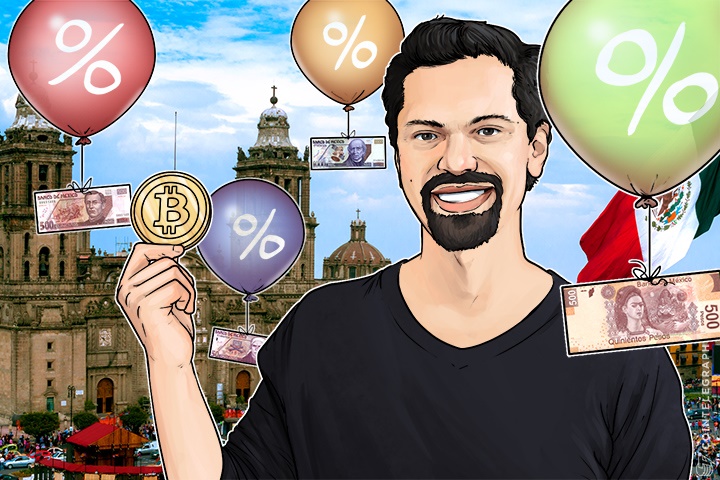Facing a weakening peso, Mexico raised interest rates on Thursday. Banco de Mexico, the nation’s central bank, raised its rate by half a percentage point to 4.25%, higher than projected.
According to Jose Rodriguez, VP of Payments for cryptocurrency exchange Bitso, this is because the peso has fallen on hard times and is performing poorly against other currencies.
He says:
“Mexican peso has had one of the worst slumps, without having an internal financial crisis like in 1994 with the "Tequila effect". Becoming one of the worst performing currencies in the last months against USD.”
A rate hike during inopportune times
While this rate hike is intended to help stave off the chance of runaway inflation, Rodriguez thinks that it will have a harmful effect on the Mexican economy.
He says:
“Although the Mexican President and Finance Minister are very optimistic about the domestic economy, it will have an effect on inflation, prices and consumers.”

Marco Montes Neri, CEO of Saldo Inc, concurs that the rate hike will hurt Mexican economic activity, particularly at the present moment of uncertainty.
He explains:
“The increase rates was very unexpected, especially because the economy is not growing. And we can say it was only driven by the fear of the dollar appreciation. That's not good news as it's not a sustainable strategy.”
Rodriguez sees this as a departure from the usual Mexican central bank policy of shadowing the actions of the US Federal Reserve.
Rodriguez says:
“Normally economic decisions like interest rates hikes in Mexico are linked to the USA. We see an interesting move in Banxicos rate rise above market expectations and making an independent movement from the FED. This made an immediate effect on the exchange rate, making a short correction.”
Peso collapse triggering a move to USD and Bitcoin
According to Neri, the weakening peso will cause a shift to assets denominated in dollars, as well as Bitcoin. Neri says that people “will move first to the USD as a store of value mechanism and Bitcoin related companies have been building apps to serve that need.”
Bitcoin presents a good alternative to weak government currencies, especially in uncertain times. However, while this opportunity holds true in Mexico, poor access to internet and a lack of education on cryptocurrency prevents many from participating.
Neri concludes:
“Startups may be faster offering wallets denominated in dollars compatible with btc and some tech savvy people will definitely see an incentive to adopt it. But still is a niche. Unfortunately, connectivity in Mexico prevents for most of the population have access to these tools.”


